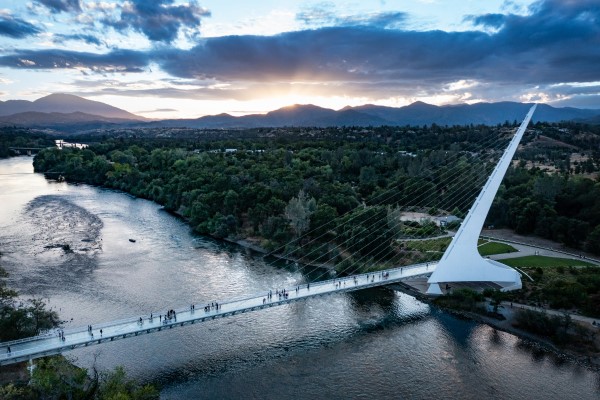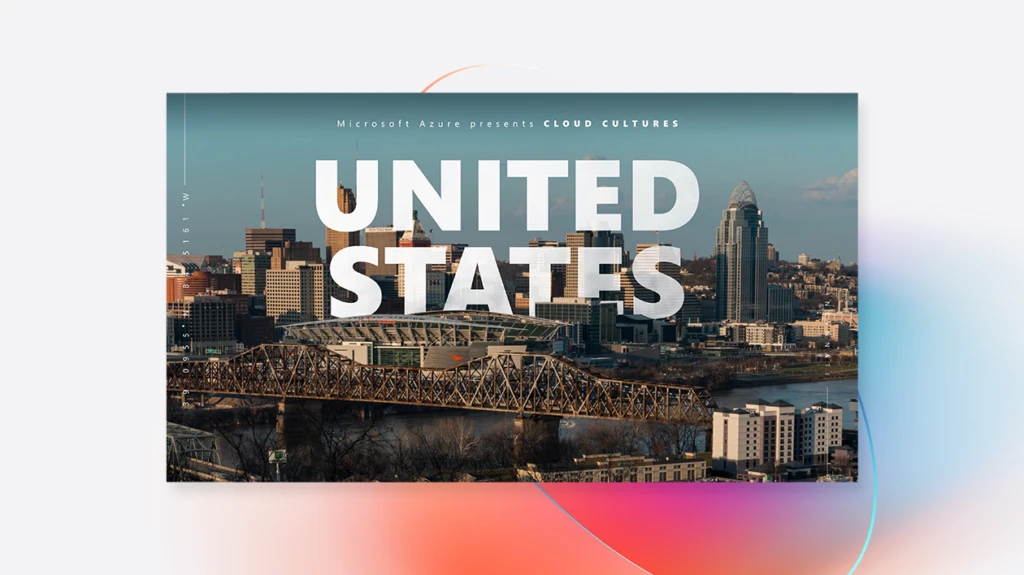
Hybrid + Multicloud, Thought leadership
Cloud Cultures, Part 8: Recapturing the entrepreneurial spirit in the American Rust Belt
Posted on
4 min read
Innovate. Connect. Cultivate.
The Cloud Cultures series is an exploration of the intersection between cloud innovation and culture across the globe.
Once known for its dominance in the coal, steel, and manufacturing industries, the American Rust Belt is entering a new era of innovation. Thousands of startups, a focus on homegrown talent, and a rich culture of resilience are sparking an unmistakable resurgence in the region.
Excited to explore this industrious spirit and a cloud culture closer to home, I ventured to the Northeastern and Midwestern states—the famed Rust Belt—to learn how entrepreneurial adaptability is energizing both people and businesses in the area.
Rediscovering an entrepreneurial spirit through cloud innovation
My journey began on a winter day in Cincinnati, where the Ohio River borders Kentucky—a scene set with icy winds swirling over city streets and expansive farms. But it’s clear that the weather doesn’t deter progress here. I ducked into a cozy coffee shop to escape the cold and meet with my cohost, Devon Allen, a Microsoft colleague, and product marketing manager for Azure.
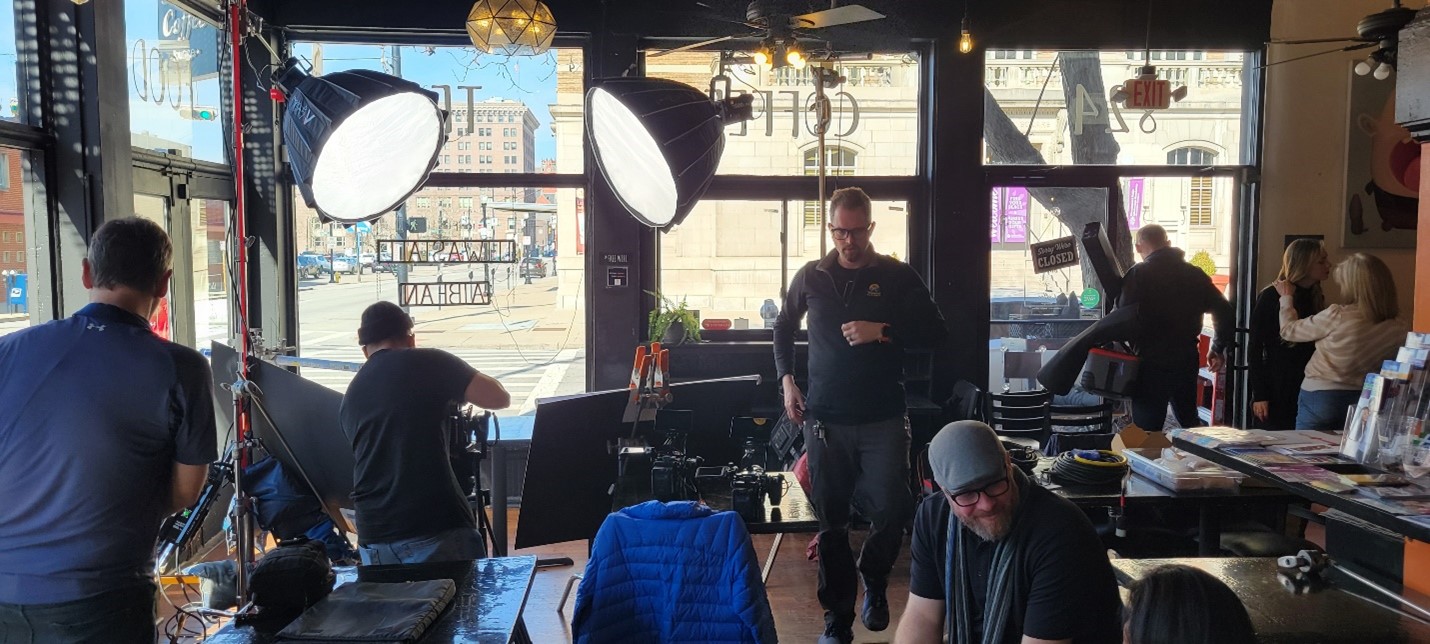
Devon is a unique cohost for this episode because of her ties to the region: she has deep roots in Appalachia and went to school in Ohio. Over coffee, she shared examples of how people in this area of the country are embracing adaptability and leaning into educating the next generation of talent, and in the process, are more resilient than ever before. Caffeinated and eager to explore, we parted ways to conduct our first interviews with local leaders.
Synthetaic represents a wave of new startups
Devon started off with a visit to Lambeau Field, the home of the NFL’s Green Bay Packers and a symbol of the area’s vibrant character. There, she met with Corey Jaskolski, CEO of Synthetaic, a startup with a remarkable mission. Beginning as a project within TitletownTech—an incubator for tech startups formed in partnership between the Green Bay Packers and Microsoft—Synthetaic’s mission is to help organizations exponentially accelerate speed-to-insight and leverage AI for good.
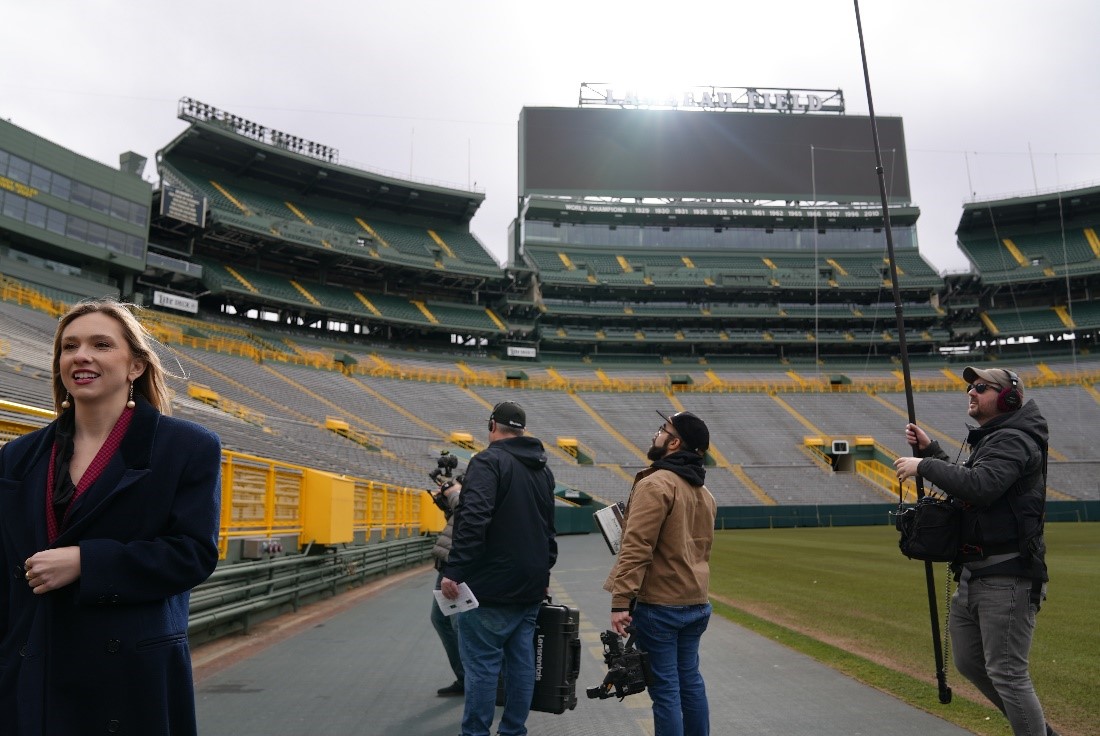
Corey Jaskolski is not just Synthetaic’s CEO; he’s a National Geographic Fellow, explorer, engineer, and MIT graduate. Through his global expeditions, Jaskolski recognized the potential of technology to enhance exploration and conservation efforts in some of the world’s most beautiful and unforgiving environments.
Synthetaic’s RAIC (Rapid Automatic Image Categorization) solution automates the analysis of large, unstructured datasets so organizations can train and deploy AI models radically faster than other approaches. While other image processing tools require deep and time-intensive calibration, RAIC can immediately detect and classify anything from a single source image, exponentially accelerating speed-to-value and reducing the risk of human error.
Synthetaic is just one of more than 18,000 startups re-energizing the region—a truly staggering number. I was heartened to see how an area famous for its industrial history is recapturing the entrepreneurial spirit with cloud innovation at the forefront.
University of Cincinnati nurtures innovators and talent
While Devon learned how AI can positively impact the world, I visited the University of Cincinnati’s 1819 Innovation Hub, a beacon of inspiration on campus that has helped UC contribute $10.6B in local economic impact. Experiencing this one-stop shop for technological advancement, ideas, and problem-solving, it was clear why the Rust Belt is flooded with incredible talent and forward-thinking innovators. In the modern, beautiful building that houses the Innovation Hub, I saw firsthand the spirit of innovation that has taken root in these states.
During my visit, I was fortunate to attend a class at the Innovation Hub. After an inspiring question and answer session with a group of students, I spoke with Assistant Vice President Kate Harmon, leader of the Center for Entrepreneurship, Associate Professor Aaron Bradley who teaches design thinking and leads the innovation scholars program, and a current student, Jay Kothari, to learn more about the work happening at UC to bridge technology and AI across all industries. Entrepreneurial adaptability is a focal point of this urban public university, providing students with a plethora of classes, resources, and learning opportunities to help them succeed. It’s even in the school motto: “NEXT Lives Here.” In fact, a recent study shows that founders of a U.S. startup who studied or worked at UC are 3.3 times more likely to achieve unicorn founder status—the highest odds ratio in the nation. Our discussion illuminated how advances in cloud technologies will continue to impact education going forward, and how the students are empowered to innovate with technology to improve their own communities.
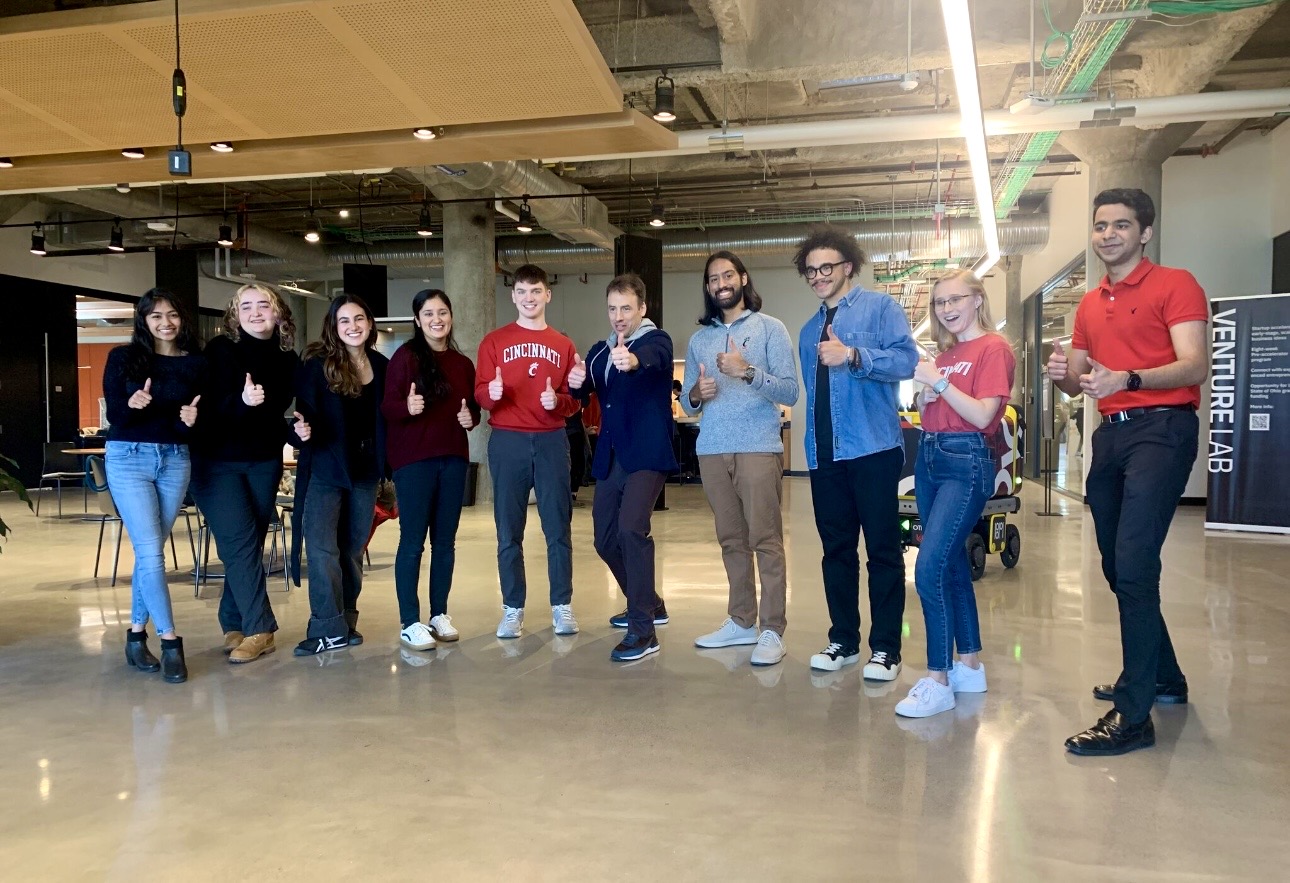
The future of innovation in the American Rust Belt
To conclude our journey, we indulged in one of Devon’s favorite local eats at the 1940s diner, Camp Washington Chili. In Cincinnati, I learned there is more than one way to enjoy this comfort food—there are five. Served over spaghetti and topped with warmed red kidney beans, diced raw onions, and shredded cheddar cheese, a bowl of five-way chili was a unique and delicious way to end the trip.
As we dug in, we chatted about our interviews and reflected on the grit and dedication embodied by everyone we spoke with. Devon shared how Jaskolski, another local, saw an abundance of talent with these same traits and understood the advantages of starting a company in the Midwest. For example, his commute to Synthetaic is only four minutes—allowing him to spend more time with his family and embrace creativity in his downtime. This was an important consideration for himself and his employees. I also told Devon about the captivating conversations I had with the University of Cincinnati’s 1819 Innovation Hub students. Their drive and forward-thinking ideas will continue to shape this region into a tech hub of the Midwest, or a “Silicon Heartland,” as Kate Harmon put it.
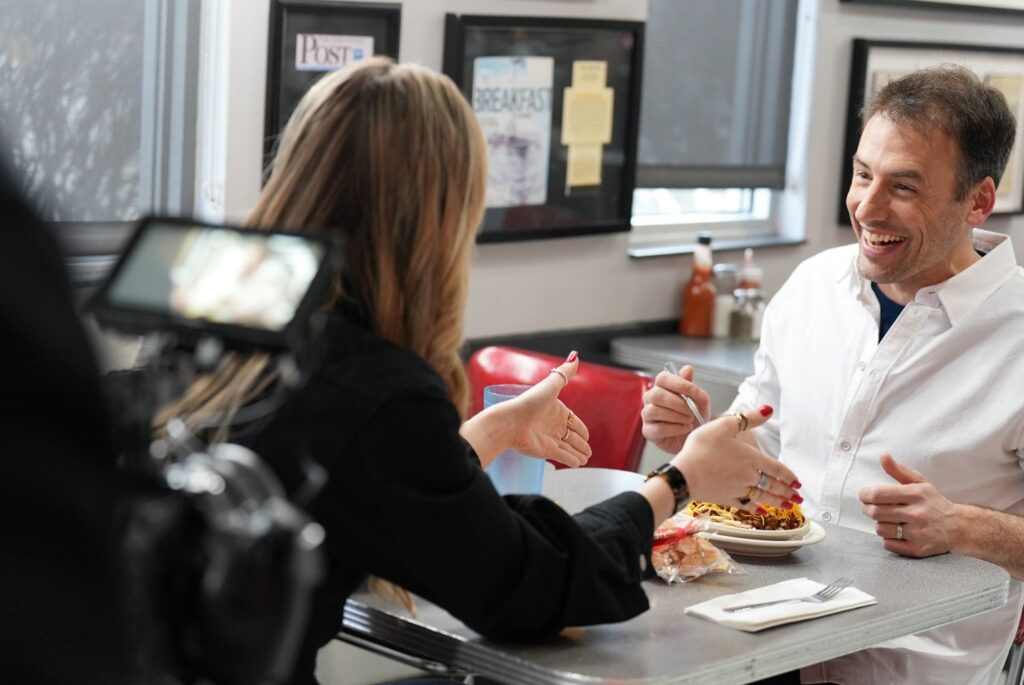
I was struck by the energy that’s paving the way for a bright future in the Rust Belt. There is change happening here—undoubtedly influenced by the acceleration of digital transformation we see on a global level. But it’s the heart and soul of the people, their ambition to adapt and grow, and their industrious heritage, that makes the resurgence possible.
I’m excited to watch this area continue to nurture their deep talent pool and innovate with technology to create positive impact—but for now, there are more cloud cultures to explore. See you on my next adventure, this time much further East! See you in Japan.
Learn more
